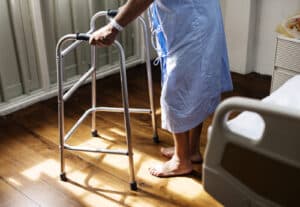According to research published in the journal PLOS ONE, robots may soon be able to take out the garbage and perform grocery shopping. AI experts from the United Kingdom and Japan were asked to predict the amount of automation in common household tasks within the next decade. Their responses indicate that approximately 39% of the time spent on housework and caring for loved ones could be automated within the next decade.
Experts predicted that grocery shopping would be the most susceptible to automation, while care for the young or elderly would be the least susceptible. In the United Kingdom, male experts were typically more optimistic about domestic automation than their female counterparts, whereas in Japan, the opposite was true.
The research indicates that domestic automation could free up a significant amount of time spent on unpaid domestic work, which could lead to greater gender equality. However, technology can be costly, and if systems to help with housework are only affordable to a subset of society, this could lead to a rise in inequality in leisure time.
Ekaterina Hertog, associate professor of AI and Society at Oxford University, remarked, “In this regard, houses are comparable to streets. It is difficult and costly to create a robot capable of performing multiple or general tasks. Instead, it is simpler and more beneficial to develop technology that aids us rather than replaces us.”
Dr. Kate Devlin, lecturer in AI and Society at King’s College, London, added, “We must be aware of the issues raised by homes full of smart automation, where an Alexa-like device can listen in and report on what we’re doing…
I do not believe that we as a society are prepared to deal with this massive invasion of privacy “.
In the next ten years, robots could revolutionise our daily lives by performing a significant portion of housework. According to research published in the journal PLOS ONE, AI experts predict that within a decade, 39% of the time spent on housework and caring for loved ones could be automated, allowing men and women of working age to devote more time to other pursuits.
Most likely to be affected by AI is grocery shopping, while care for the young or elderly is least likely to be affected. In the United Kingdom, male experts are more optimistic about domestic automation than their female counterparts, whereas in Japan, the situation is reversed.
Professor of AI and Society at Oxford University, Ekaterina Hertog, remarked, “It is difficult and expensive to create a robot that can perform multiple or general tasks. Instead, it is simpler and more beneficial to develop technology that aids us rather than replaces us.” She continued by stating that the technology has the potential to lead to greater gender equality, but cautioned that if systems are only affordable to a subset of society, it could lead to an increase in inequality in leisure time.
Dr. Kate Devlin, lecturer in AI and Society at King’s College, London, remarked, “We must be aware of the issues raised by homes filled with smart automation…
I don’t think that we as a society are prepared to manage that wholesale onslaught on privacy”.
Within the next decade, robots could alleviate some of the burden on households by performing a variety of tasks, such as grocery shopping and elderly care. According to research published in PLOS ONE, AI experts anticipate that approximately 39% of the time spent on housework and family care could be automated within this timeframe. This would free up time for men and women of working age, which could lead to greater gender equality. Nevertheless, there are still concerns regarding affordability and privacy implications.

















